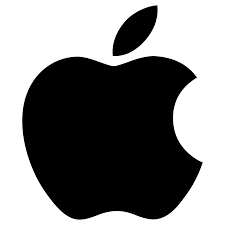 Sometimes, timing is everything, and this is one of those instances. Apple could not have picked a better day to move its iMessage-based Business Chat out of beta. As Facebook’s CEO Mark Zuckerberg bore the slings, errors and innuendo that the breach of 50 million subscribers’ personal information engenders, Tim Cook could showcase the long-standing respect that his company has paid to individual privacy, centered on end-to-end encryption of iMessage and extended to the integration of iMessage Apps that simplify messaging-based interactions between brands and their customers or prospects.
Sometimes, timing is everything, and this is one of those instances. Apple could not have picked a better day to move its iMessage-based Business Chat out of beta. As Facebook’s CEO Mark Zuckerberg bore the slings, errors and innuendo that the breach of 50 million subscribers’ personal information engenders, Tim Cook could showcase the long-standing respect that his company has paid to individual privacy, centered on end-to-end encryption of iMessage and extended to the integration of iMessage Apps that simplify messaging-based interactions between brands and their customers or prospects.
It is also tremendously good news for a cadre of companies on Opus Research’s Conversational Commerce Landscape whose participation in the beta program was announced in June 2017. It has given the opportunity for Nuance, Genesys, LivePerson and Salesforce to highlight the newly announced platform’s ability to shorten the time it takes to get a support issue resolved and simplify or eliminate the effort it takes to reach an agent, chatbot or intelligent assistant that can understand, or even anticipate, the purpose of the contact and resolve issues quickly. Since the June 2017 announcement, the four companies mentioned above have been joined by ZenDesk and IntheChat.
A little less than a year later, with the formal integration of Business Chat into the latest version of iOS 11, we’re observing that some of the partners have been more effective than others in enlisting recognized brands into the iMessage Business Chat fold. LivePerson is definitely in the leadership position with demonstrably successful implementations with Lowe’s and Home Depot (for home improvement) and Discover (for financial services) and T-Mobile (for telecom). Salesforce will build buzz based on its support of Marriott’s International’s iMessage offering. Other companies providing conversational access to customer support or sales resources include Apple, most likely leveraging Genesys resources, Hilton Hotels, Newegg, TD Ameritrade, Wells Fargo and 1-800-Flowers.
The value proposition is quite simple both for brands and their customers/prospects. Hundreds of millions of people regularly use Twitter, Facebook Messenger, WhatsApp and other messaging platforms. Many of them, claimed to be around 30 percent and growing, have used messaging to reach customer care from brands. Those that have used it prefer a text-based chat to waiting on hold to reach a live agent. (It is no coincidence that 1-800-Flowers, one of the earliest innovators in promoting toll-free access to sales agents, is one of the first companies that has jumped onto the messaging bandwagon.
Customer Support Leads the Way
Apple and its partners are destined to succeed in their efforts to establish secure, trusted connections with customers and prospects. The fact that individuals are already logged in with iMessage makes their Apple ID an identifier and obviates the need for an individual to log in to carry out basic conversation and and queries (AKA Conversational Commerce). Brands have to support Chat for Business of necessity because they know that many of their best customers own iPhones and will wonder why they can’t reach support personnel via Messenger. It is not a coincidence that T-Mobile and KLM are leading the way in incorporating messaging-based support into their customer care strategies.
So it begins. Apple is showing the way for many brands to do chat-based Intelligent Assistance right. Discovery will be based on scanning a QR code. No authentication will be required because you initiate each conversation in iMessage. Life is good!
Yet in the cold light of day, Apple may just be creating another walled garden wherein an AppleID is not associated with a company’s most commonly used identifier; e.g. their account number, phone number or loyalty card. The last thing that proponents of “Digital Transformation” or “Conversational Commerce” need is yet-another-digital-channel for Marketing, Sales, or Advertising to support. Apple’s approach has real merit but it owes it to the rest of the digital commerce world to recognize that we’re not divided into Apple Fanboys and “the rest of us.”
Categories: Intelligent Assistants, Articles

 2025 Conversational AI Intelliview: Decision-Makers Guide to Self-Service & Enterprise Intelligent Assistants
2025 Conversational AI Intelliview: Decision-Makers Guide to Self-Service & Enterprise Intelligent Assistants  Talk to the Web: How NLWeb Opens Conversational Access to Site Content
Talk to the Web: How NLWeb Opens Conversational Access to Site Content  Battling ‘Botenfreude’: The Power of People and Policy
Battling ‘Botenfreude’: The Power of People and Policy  Voice AI Agents Redefine CX: Trends, ROI, and Strategies for 2025
Voice AI Agents Redefine CX: Trends, ROI, and Strategies for 2025